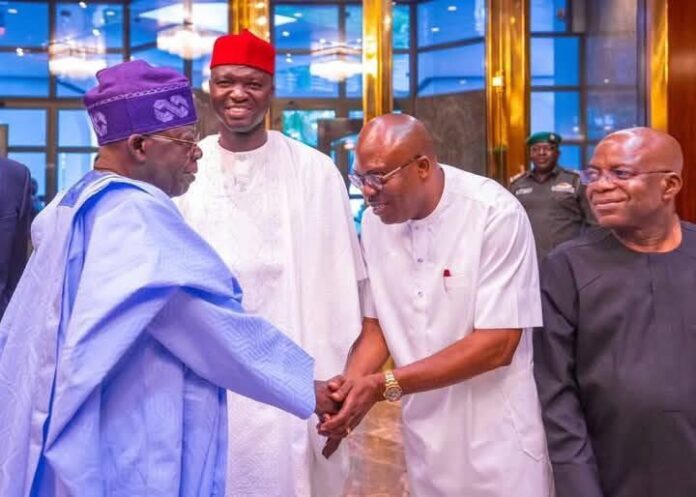By: Daure David
In a significant move aimed at resolving the deepening political crisis in Rivers State, President Bola Ahmed Tinubu met with suspended Governor Siminalayi Fubara in London last week, sources close to the presidency have confirmed.
The meeting, which reportedly took place shortly after the president’s official visit to Paris, was convened at the request of Governor Fubara. According to insiders, the embattled governor is eager to regain his position following the declaration of a state of emergency in the oil-rich Niger Delta state.
“Negotiations are ongoing, but from all indications, his suspension will be lifted before the six-month deadline,” a senior presidential adviser disclosed under anonymity, citing restrictions on speaking to the press.
Governor Fubara, facing mounting political pressure and a widening rift with his erstwhile political benefactor Nyesom Wike, is said to have offered a number of concessions during the meeting. One key possibility under consideration is his defection to the ruling All Progressives Congress (APC), a move that could significantly shift the political dynamics in Rivers State.
“If Fubara joins the APC, it means the president’s chances of winning Rivers State are much higher,” a presidential aide remarked, suggesting that Fubara’s political alignment may serve as both a survival strategy and a show of loyalty to the presidency.
Notably absent from the London talks was former Governor Wike, currently the Minister of the Federal Capital Territory, whose strained relationship with Fubara has been at the heart of the state’s political instability. Sources indicate that Wike was displeased with the private nature of the London meeting, which occurred without his input or consent.
Despite this, President Tinubu is reportedly working behind the scenes to convene a reconciliation meeting between Fubara, Wike, and key lawmakers from the Rivers State House of Assembly. The goal, according to insiders, is to broker a durable resolution to the crisis that has paralyzed governance in the state and drawn national attention.
The outcome of these discussions could have far-reaching implications—not only for Rivers politics but also for the broader realignment of power within the South-South geopolitical zone ahead of the next general elections.
More developments are expected in the coming weeks as the presidency intensifies efforts to restore stability in the region sources revealed.







